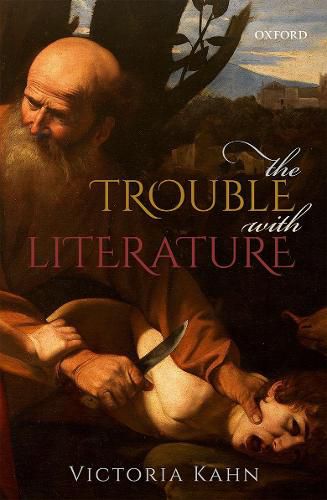Readings Newsletter
Become a Readings Member to make your shopping experience even easier.
Sign in or sign up for free!
You’re not far away from qualifying for FREE standard shipping within Australia
You’ve qualified for FREE standard shipping within Australia
The cart is loading…






This book, based on the Clarendon Lectures in English for 2017, argues that the literature of the English Reformation marks a turning point in Western thinking about literature and literariness. But instead of arguing that the Reformation fostered English literature, as scholars have often done, Victoria Kahn claims that literature helped undo the Reformation, with implications for both poetry and belief. Ultimately, literature in the Reformation is one vehicle by which religious belief was itself transformed into a human artifact, whether we understand this as a poetic artifact or a mental fiction. This transformation in turn helped produce the eighteenth-century discipline of aesthetics, with its emphasis on our experience of non-cognitive pleasure in the work of art, and the modern formalist definition of literature, according to which--in the words of one critic--'literature solves no problems and saves no souls.' This modern definition of literature, in short, has a history, this history is intertwined with the problem of belief, and by returning to the fraught years of the late sixteenth and seventeenth century in England, we can come to a new understanding of how the trouble with literature has shaped our discipline. The first lecture contrasts modern and early modern understandings of literature and literariness. The second and third lectures focus on Thomas Hobbes and John Milton. The fourth lecture treats the work of Immanuel Kant, Soren Kierkegaard, and J.M. Coetzee.
$9.00 standard shipping within Australia
FREE standard shipping within Australia for orders over $100.00
Express & International shipping calculated at checkout
This book, based on the Clarendon Lectures in English for 2017, argues that the literature of the English Reformation marks a turning point in Western thinking about literature and literariness. But instead of arguing that the Reformation fostered English literature, as scholars have often done, Victoria Kahn claims that literature helped undo the Reformation, with implications for both poetry and belief. Ultimately, literature in the Reformation is one vehicle by which religious belief was itself transformed into a human artifact, whether we understand this as a poetic artifact or a mental fiction. This transformation in turn helped produce the eighteenth-century discipline of aesthetics, with its emphasis on our experience of non-cognitive pleasure in the work of art, and the modern formalist definition of literature, according to which--in the words of one critic--'literature solves no problems and saves no souls.' This modern definition of literature, in short, has a history, this history is intertwined with the problem of belief, and by returning to the fraught years of the late sixteenth and seventeenth century in England, we can come to a new understanding of how the trouble with literature has shaped our discipline. The first lecture contrasts modern and early modern understandings of literature and literariness. The second and third lectures focus on Thomas Hobbes and John Milton. The fourth lecture treats the work of Immanuel Kant, Soren Kierkegaard, and J.M. Coetzee.